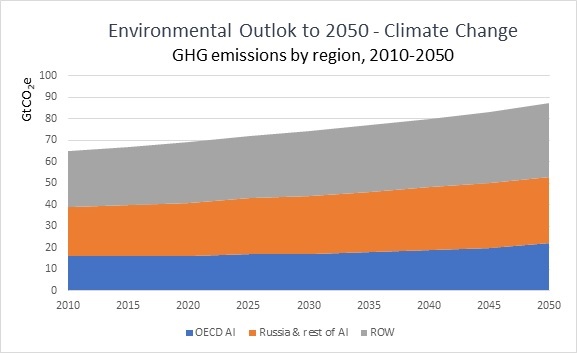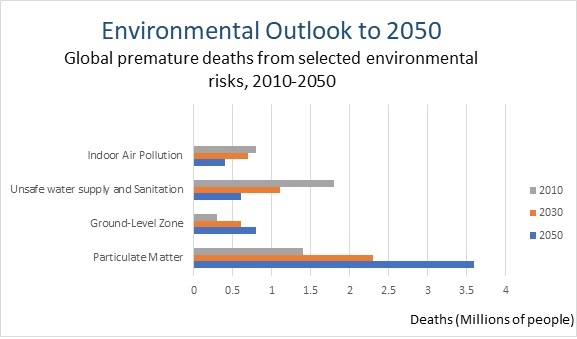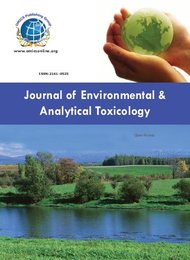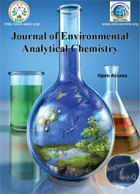Theme: Multidisciplinary Approaches Towards Environmental and Health Safety
Environmental Toxicology Congress 2019
Environment and Health Congress 2018 - Report
The World Congress on Environmental Toxicology and Health was organized during July 11-12, 2018 at the Mercure Sydney Central, Sydney, Australia. The conference was marked with the attendance of Editorial Board Members of supported Conferenceseries llc LTD Group Journals, Scientists, young and brilliant researchers, business delegates and talented student communities representing more than 20 countries, who made this conference fruitful and productive.
The conference proceeded through various Scientific Sessions and plenary lectures, of which the following topics were highlighted as Keynote presentations:
- Nanomaterial carcinogenicity: Role of cancer stem cells and tumor microenvironment: Yon Rojanasakul, West Virginia University, USA
- Risk assessment and bioavailability of mercury from dust in gold mining areas in Johannesburg, South Africa: Ewa Cukrowska, University of the Witwatersrand, South Africa
- The air pollution caused by wildland fires and the effects on health: Jaime Senabre, SINIF, Spain
Scientific sessions were chaired by Ewa Cukrowska, University of the Witwatersrand, South Africa.
Conference Series llc LTD has taken the grand privilege of felicitating Environment and Health Congress 2018 Organizing Committee, Editorial Board Members and Keynote Speakers who supported for the success of this event.
The esteemed guests, Keynote speakers, well-known researchers, and delegates shared their innovative research and vast experience through their presentations at the podium of Environment and Health Congress 2018. We are glad to inform that all accepted abstracts for the conference have been published in the Journal of Environmental and Analytical Toxicology as a special issue.
Conference Series llc LTD is expected to give a setting to go to "2nd World Congress on Environmental Toxicology and Health" during June 10-11, 2019 in Osaka, Japan for participants from all over the world for keynote presentations, video presentations, poster presentations, oral talks and exhibitions.
Theme: "Multidisciplinary Approaches Towards Environmental and Health Safety"
Toxicology is defined as the study of the effects of chemical agents on biological material in a harmful manner. Accordingly, Environmental Toxicology, the result of Environmental Pollution, can be defined as the effects of environmental toxicants on health and the environment. Environmental toxicants may be of chemical and biological origin like toxicants from pollutants, insecticides, pesticides, and fertilizers are released into the general environment that can cause adverse effects on health. The word “health” here refers to not only human health but also the health of animals and plants. Organisms can be exposed to various kinds of toxicants at any life cycle stage. Toxicity can also vary with the organism’s placement within its food web. Environmental Toxicology is thus concerned with how environmental toxicants, through their interaction with humans, animals, and plants, influence the health and welfare of these organisms.
To advance multidisciplinary and worldwide research on the global environment, an exchange between related specialists must be encouraged. Common coordination and joint effort among national research foundations, universities and other research organizations ought to be progressive with the participation of related ministries and agencies. With the expanding number of environmental issues, environmental toxicology gets expanding consideration and is relied upon to play critical as a help device for ecological hazard evaluation. More basic and applied research must be completed to manage the public health challenges regarding ecological issues and to expand the body of scientific knowledge in this field.
Importance and Scope:
Environmental Toxicology and Health is a multidisciplinary field of study in the Environmental Sciences and is intended to provide a venue for presenting and discussing fundamental and applied research advances relevant to the issues of local/global environments, human/animal health, and occupational safety. It provides a forum for professionals in academia, industry, and government involvement in the use, protection, and management of the chemicals in the environment for the enhancement of human health and occupational safety. It occupies an important niche among lethal concentration and public policy. It focuses on the applications of sciences and technologies in environmental decision-making, regulations, and management, and the development of science-based solutions of local/global issues of environment, health, and safety.
Why Osaka, Japan?
Osaka is a cosmopolitan city close to the antiquated capital, Kyoto. Being the capital of Osaka prefecture and it is also part of Japan's second largest metropolitan area, Keihanshin with a population of 2.6 million. It has been the economic powerhouse of the Kansai Region for a long time. The sixteenth-century shogunate Osaka Castle, which has experienced a few reclamations, is its principle recorded point of interest feature of Osaka is undeniably a beautiful Osaka. A standout amongst the most well-known celebrations held in Osaka, the Tenjin Matsuri. As society changes because of presentation of new innovations and challenges of sustainable development in the face of an increased human population, particularly in the East Asian region, the role of environmental toxicology in enlightened public health and public policy will become even more important.
In Osaka, some of the research institutes and associations dealing with the Environmental Toxicology, Analytical Toxicology, Environmental Health and Safety, Environmental Toxicology and Chemistry, Waste Recycling and Management. Moreover, there have been numerous open information programs organized in Osaka, to enhance self-adequacy in the prevention of environmental toxicity.
These developments and their corresponding consequences have accompanied Osaka in becoming a perceived world pioneer. Thus, Osaka has been chosen to conduct the conference Environmental Toxicology Congress 2019.
Conference Highlights:
· Pollution
. Regulatory Toxicology
. Economic toxicology
. Climate Change
. Medical Toxicology
. Occupational Toxicology
. Environmental Toxicology and Chemistry
. Epidemiology and Biostatistics
. Environment and Health Safety
. Waste Recycling and Management
. Agriculture Toxicology
. Health Economics and Public Policies
. Global Warming
. Green Chemistry
. Bioaccumulation & Ecology Impacts
. Carcinogenesis & Mutagenesis
. Environmental Compliance
Why attend?
This International Conference is open to Students, Researchers, Engineers, Scholars from all Universities all around the world to impact Networking & Professional Development. Foreseen regions of center incorporate environmental safety and its advances; this is your best chance to achieve the biggest assemblage of participants from the public health community. Conduct presentations, distribute information, meet with current ecologists, environmental health and safety engineers and get name acknowledgment at this 2-days event. Environmental courses offer diverse Community Service-Learning (CSL) alternatives that include working with the university or local organizations. This conference paves the way for scientific cooperation by meeting and connecting with researchers, Epidemiologists, Environmental Health Specialists from different countries and they also help in coordinating aggregate research projects of special issues in peer-reviewed journals or funding applications.
Target Audience:
Join in the Environmental Toxicology Congress 2019 to keep up to date with the industry and to learn from our expert speaker panel, bringing you essential new contextual analyses and reports on the current year’s relevant topics.
· Environmental Health Specialists
· Occupational Therapists
· Ecologists
· Pest Control Professionals
· Biodiversity Professionals
· Students in Public Health
· Epidemiologists
. Environmental Science Professors
· Health Care Departments
A Unique Opportunity for Advertisers, exhibitors, and Sponsors at 2nd World Congress on Environmental Toxicology and Health 2019: https://environment.conferenceseries.com
Market at a Glance:
Environmental Outlook to 2050 provides analyses of economic and environmental trends to 2050, and recreations of strategy activities to address the key challenges. Without new policies, we risk irreversibly damaging the environment and the natural resource base expected to support economic growth and well-being.
In any case, the Outlook shows that tackling the key environmental issues we face today – including climate change, biodiversity loss, water scarcity and the health impacts of pollution - is both achievable and reasonable. It highlights a mix of policies that can address these challenges in a cost-effective way. The focal point of this Outlook is extended from the 2001 edition to reflect advancements in both OECD countries and Brazil, Russia, India, Indonesia, China, and how they might better co-operate on worldwide and local environmental problem-solving.

A PESTEL analysis is a framework or tool used by marketers to analyse and screen the macro-environmental (external marketing environment) factors that affect an organization. The result of which is used to identify threats and weaknesses which is utilized as a part of a SWOT analysis.

Track 1: Pollution
Pollution refers to the presence and undesirable changes occurring in the physical, chemical, and biological composition of the natural environment consisting of air, water, and soil that has harmful effects. Pollutants, the components of pollution, can be either foreign substances/energies or naturally occurring contaminants. Pollution is the introduction of contaminants into the environment and that is called environmental pollution.
Recommended: -
Environment Conferences, Environmental Toxicology Conference, Pollution Conferences 2019, Environmental Chemistry, Global Warming, Green Chemistry, Ecology Conference
Related Conferences: -
2nd Annual Congress on Environmental Pollution and Health Hazards October 22-23, 2018 Osaka, Japan; 7th International Conference on Climate Change and Medical Entomology October 15-16, 2018 Dubai, UAE; 5th International Conference on Pollution Control & Sustainable Environment March 14-16, 2019 London, UK; 6th World Congress on Climate Change & Global Warming April 23-24,2019 Vancouver, Canada.
Track 2: Regulatory Toxicology
Regulatory toxicology comprises the study of a toxicity profile that is compared with other known toxicants. Regulatory toxicology works as the major center for laws that limit exposures for people and the environment. The regulatory toxicology is to control production, use, and deposition of dangerous materials to prevent adverse effects on human health and the environment. This requires enough information on the hazardous properties of a chemical compound, their relevance to man and of human and environmental exposure, which is a prerequisite for appropriate risk assessment and the decision whether regulatory consequences are warranted.
Recommended: -
Environmental Congress, Environmental Epidemiology, Environmental Toxicology, Environment Waste & Recycling, Environmental Contamination, Environment Conferences
Related Conferences: -
3rd International Conference on Ecology, Ecosystem and Conservation Biology March 20-21,2019 Chicago, USA; 8th International Conference on Environment and Climate Change November 22-23, 2018 Bucharest, Romania; 6th World Congress on and Recycling May 13-14, 2019 Singapore; World Congress on Environmental Toxicology and Health July 11-12, 2018 Sydney, Australia; Pollution Control & Sustainable Environment March 14-16, 2019 London, UK; 9th World Convention on Waste Recycling and Reuse March 19-20,2019 Singapore.
Track 3: Economic Toxicology
The Economic toxicology alludes to the unsafe effect engaged with the use of food additives in food preservation and processing, man-made fertilizers and pesticides in advanced agriculture. Poisoning accidentally or occupationally which is so common in the use of synthetic insecticides and the adulteration of foodstuffs by these toxic chemicals are areas of attention in economic toxicology.
Recommended: -
Environment Conferences, Pollution Conferences 2019, Global Warming, Green Chemistry, Global Warming, Environmental Pollution Conferences, Recycling and waste management
Related Conferences: -
2nd World Conference on Soil Microbiology, Ecology and Biochemistry February 25-26, 2019 London, UK; 8th International Conference on Environment and Climate Change November 22-23, 2018 Bucharest, Romania; 8th International Conference on Biodiversity Conservation and Ecosystem Management May 15-16, 2019 Singapore; 9thWorld Convention on Waste Recycling and Reuse March 19-20,2019 Singapore; World Congress on Environmental Toxicology and Health July 11-12, 2018 Sydney, Australia; 3rd International Conference on Ecology, Ecosystem and Conservation Biology March 20-21,2019 Chicago, USA
Track 4: Climate Change
Climate change, also called global warming, refers to the rise in average surface temperatures on Earth. Climate change is a change in the statistical distribution of weather patterns when that change lasts for an expanded timeframe (i.e., decades to millions of years). Environmental change may refer to a change in average weather conditions, or in the time variation of climate inside the setting of longer-term normal conditions. Climate change is caused by factors, for example, biotic procedures, variations in solar radiation received by Earth, plate tectonics, and volcanic emissions. Certain human activities have been identified as essential drivers of ongoing climate change. Weathering, degradation of materials by abiotic environmental forces and associated biotic processes.
Recommended:-
Environment Conferences, Environmental Toxicology Conference, Pollution Conferences 2019, Environmental Chemistry, Global Warming, Green Chemistry, Ecology Conference
Related Conferences: -
5th World Conference on Climate Change October 4-6, 2018 Park Inn by Radisson, London, UK; 8th International Conference on Environment and Climate Change November 22-23, 2018 Bucharest, Romania; 9th International Conference on Global Warming, Climate Change and Pollution Control, Vancouver, Canada, Dec 5-6, 2018; 9th World Convention on Waste Recycling and Reuse March 19-20,2019 Singapore; 3rd International Conference on Ecology, Ecosystem and Conservation Biology March 20-21,2019 Chicago, USA; 7th International Conference on Climate Change and Medical Entomology October 15-16, 2018 Dubai, UAE
Track 5: Medical Toxicology
Medical toxicology is a subspecialty of medicine focusing on toxicology and providing the diagnosis, management, and prevention of poisoning and other adverse effects due to medications, occupational and environmental toxicants, and biological agents. Medical toxicologists are involved in the assessment and treatment of a wide variety of problems including acute or chronic poisoning, adverse drug reactions (ADRs), drug overdoses, envenomation, substance abuse, industrial accidents, and other chemical exposures.
Recommended: -
Environmental Congress, Environmental Epidemiology, Environmental Toxicology, Environment Waste & Recycling, Environmental Contamination, Environmental Conferences
Related Conferences: -
World Congress on Environmental Toxicology and Health July 11-12, 2018 Sydney, Australia; 2nd World Conference on Soil Microbiology, Ecology and Biochemistry February 25-26, 2019 London, UK; International Conference on Environmental Microbial Biofilms and Human Microbiomes March 21-22, 2019 Dubai, UAE; 8th International Conference on Biodiversity Conservation and Ecosystem Management May 15-16, 2019 Singapore; 9th World Convention on Waste Recycling and Reuse March 19-20,2019 Singapore; 3rd International Conference on Ecology, Ecosystem and Conservation Biology March 20-21,2019 Chicago, USA
Track 6: Occupational Toxicology
Occupational Toxicology is involved with health effects from exposure to chemicals in the workplace. The objective of the occupational toxicologist is to prevent adverse health effects in workers that arise from exposures in their work environment. Occupational toxicologists assess the hazards and risks to health posed by chemicals encountered in the workplace. The risk assessments provided by occupational toxicologists are crucial for avoiding ill health linked to work.
Recommended: -
Environment Conferences, Pollution Conferences 2019, Global Warming, Green Chemistry, Global Warming, Environmental Pollution Conferences, Recycling and waste management
Related Conferences: -
5th International Conference on Pollution Control & Sustainable Environment March 14-16, 2019 London, UK; 9th International Conference on Global Warming, Climate Change and Pollution Control, Vancouver, Canada, Dec 5-6, 2018; 8th International Conference on Biodiversity Conservation and Ecosystem Management May 15-16, 2019 Singapore; 9th World Convention on Waste Recycling and Reuse March 19-20,2019 Singapore; 3rd International Conference on Ecology, Ecosystem and Conservation Biology March 20-21,2019 Chicago, USA; 9th World Convention on Recycling and Waste Management October 22-23, 2018 Osaka, Japan
Track 7: Environmental Toxicology and Chemistry
Environmental Toxicology and Chemistry describes original experimental or theoretical work that significantly advances understanding in the area of environmental toxicology, environmental chemistry, and hazard/risk assessment. Environmental Toxicology and Chemistry is interdisciplinary topics that integrate the field of toxicology in the environment; environmental, analytical, and molecular chemistry of ecosystem.
Recommended: -
Environment Conferences, Environmental Toxicology Conference, Pollution Conferences 2019, Environmental Chemistry, Global Warming, Green Chemistry, Ecology Conference
Related Conferences: -
5th International Conference on Pollution Control & Sustainable Environment March 14-16, 2019 London, UK; 36th International Conference on Environmental Chemistry & Water Resource Management September 24-25, 2018 Chicago, Illinois, USA; World Congress on Environmental Toxicology and Health July 11-12, 2018 Sydney, Australia; 7th International Conference on Climate Change and Medical Entomology October 15-16, 2018 Dubai, UAE; 8th International Conference on Biodiversity Conservation and Ecosystem Management May 15-16, 2019 Singapore; 3rd International Conference on Ecology, Ecosystem and Conservation Biology March 20-21,2019 Chicago, USA.
Track 8: Epidemiology and Biostatistics
Epidemiology and Biostatistics apply, develops, and teaches the skills needed to understand the determinants of disease and improve health. The descriptive and analytic approaches (epidemiology) needed to investigate and understand the complex causes of major public health problems and to develop effective strategies to prevent them. The biostatistics program centers on the development and application of theory and methods in the collection, analysis, and interpretation of data used in public health and other biomedical sciences.
Recommended: -
Environmental Congress, Environmental Epidemiology, Environmental Toxicology, Environment Waste & Recycling, Environmental Contamination, Environment Conferences
Related Conferences: -
World Congress on Environmental Toxicology and Health July 11-12, 2018 Sydney, Australia; 9th International Conference on Global Warming, Climate Change and Pollution Control, Vancouver, Canada, Dec 5-6, 2018; 7th International Conference on Climate Change and Medical Entomology October 15-16, 2018 Dubai, UAE; 9th World Convention on Waste Recycling and Reuse March 19-20,2019 Singapore; 3rd International Conference on Ecology, Ecosystem and Conservation Biology March 20-21,2019 Chicago, USA; 9th World Convention on Recycling and Waste Management October 22-23, 2018 Osaka, Japan
Track 9: Environmental Health and Safety
Environmental Health and Safety is a discipline and specialty that studies and implements practical aspects of environmental protection and safety at work. From an environmental standpoint, it involves creating a systematic approach to complying with environmental regulations, such as managing waste or air emissions all the way to helping sites reduce the company's carbon footprint. From a health & safety standpoint, it involves creating organized efforts and procedures for identifying workplace hazards and reducing accidents and exposure to harmful situations and substances.
Recommended: -
Environment Conferences, Pollution Conferences 2019, Global Warming, Green Chemistry, Global Warming, Environmental Pollution Conferences, Recycling and waste management
Related Conferences: -
World Congress on Environmental Toxicology and Health July 11-12, 2018 Sydney, Australia; 9th International Conference on Global Warming, Climate Change and Pollution Control, Vancouver, Canada, Dec 5-6, 2018; 8th International Conference on Biodiversity Conservation and Ecosystem Management May 15-16, 2019 Singapore; 3rd International Conference on Ecology, Ecosystem and Conservation Biology March 20-21,2019 Chicago, USA; 9th World Convention on Recycling and Waste Management October 22-23, 2018 Osaka, Japan
Track 10: Waste Recycling and Management
Waste management is the collection, transport, processing, managing and monitoring of waste materials. Waste management is a distinct practice from resource recovery which focuses on the optimum utilization of the natural resources with social responsibility. It aims at unearthing the recent innovations and developments in this field with a view to check global warming. All the activities and actions required to manage waste from its inception to its final disposal. This includes amongst other things collection, transport, treatment and disposal of waste together with monitoring and regulation. It also encompasses the legal and regulatory framework that relates to waste management encompassing guidance on recycling.
Recommended: -
Environment Conferences, Environmental Toxicology Conference, Pollution Conferences 2019, Environmental Chemistry, Global Warming, Green Chemistry, Ecology Conference
Related Conferences: -
2nd Annual Congress on Environmental Pollution and Health Hazards October 22-23, 2018 Osaka, Japan; 6th World Congress on Green Chemistry and Recycling May 13-14, 2019 Singapore; World Congress on Environmental Toxicology and Health July 11-12, 2018 Sydney, Australia; Pollution Control & Sustainable Environment March 14-16, 2019 London, UK; 9th World Convention on Recycling and Reuse March 19-20,2019 Singapore; 6th World Congress on Green Chemistry and Recycling May 13-14, 2019 Singapore
Track 11: Agricultural Toxicology
The most important risk in agriculture derives from exposure to pesticides. Evaluation of the extensive toxicological studies required for all pesticides. From the past 50 years, agriculture has deeply changed with a massive utilization of pesticides and fertilizers to enhance crop protection and production, food quality and food preservation. Pesticides are unique chemicals as they are intrinsically toxic for several biological targets, are deliberately spread into the environment, and their toxicity has a limited species selectivity. The post-marketing risk assessment takes place during the use of pesticides and aims at assessing the risk for exposed operators.
Recommended: -
Environmental Congress, Environmental Epidemiology, Environmental Toxicology, Environment Waste & Recycling, Environmental Contamination, Environment Conferences
Related Conferences: -
6th International Conference on Green Energy & Expo Aug 29-31, 2018 Toronto, Ontario, Canada; 36th International Conference on Environmental Chemistry & Water Resource Management September 24-25, 2018 Chicago, Illinois, USA; 9th International Conference on Global Warming, Climate Change and Pollution Control, Vancouver, Canada, Dec 5-6, 2018; 8th International Conference on Biodiversity Conservation and Ecosystem Management May 15-16, 2019 Singapore; 9th World Convention on Waste Recycling and Reuse March 19-20,2019 Singapore; 3rd International Conference on Ecology, Ecosystem and Conservation Biology March 20-21,2019 Chicago, USA
Track 12: Health Economics and Public Policies
Health resources include all the staff that is directly or indirectly involved in any health issue concern. The field of health human resources deals with issues such as planning, development, performance, management, retention, information, and research on human resources for the health care sector. Health Economics and Public Policies in the field identifying with authority, administration, and organization of public health, health awareness systems, clinics, and doctor's facility systems.
Recommended: -
Environment Conferences, Pollution Conferences 2019, Global Warming, Green Chemistry, Global Warming, Environmental Pollution Conferences, Recycling and waste management
Related Conferences: -
8th International Conference on Biodiversity Conservation and Ecosystem Management May 15-16, 2019 Singapore; 7th International Conference on Climate Change and Medical Entomology October 15-16, 2018 Dubai, UAE; 5th International Conference on Pollution Control & Sustainable Environment March 14-16, 2019 London, UK; 9th International Conference on Global Warming, Climate Change and Pollution Control, Vancouver, Canada, Dec 5-6, 2018; 8th International Conference on Biodiversity Conservation and Ecosystem Management May 15-16, 2019 Singapore; 3rd International Conference on Ecology, Ecosystem and Conservation Biology March 20-21,2019 Chicago, USA
Track 13: Global Warming
A gradual increase in the overall temperature of the earth's atmosphere generally attributed to the greenhouse effect caused by increased levels of carbon dioxide, CFCs, and other pollutants. Global warming, also referred to as climate change, is the observed century-scale rise in the average temperature of the Earth's climate system and its related effects. Multiple lines of scientific evidence show that the climate system is warming. Future climate change and associated impacts will differ from region to region. Anticipated effects include increasing global temperatures, rising sea levels, changing precipitation, and expansion of deserts in the subtropics.
Recommended: -
Environment Conferences, Environmental Toxicology Conference, Pollution Conferences 2019, Environmental Chemistry, Global Warming, Green Chemistry, Ecology Conference
Related Conferences: -
7th International Conference on Climate Change and Medical Entomology October 15-16, 2018 Dubai, UAE; 5th International Conference on Pollution Control & Sustainable Environment March 14-16, 2019 London, UK; 9th International Conference on Global Warming, Climate Change and Pollution Control, Vancouver, Canada, Dec 5-6, 2018; 5th World Conference on Climate Change October 4-6, 2018 Park Inn by Radisson, London, UK; 8th International Conference on Environment and Climate Change November 22-23, 2018 Bucharest, Romania; 9th World Convention on Waste Recycling and Reuse March 19-20,2019 Singapore
Track 14: Green Chemistry
Green chemistry is the design of chemical products and processes that reduce or eliminate the use or generation of hazardous substances. Green chemistry applies across the life cycle of a chemical product, including its design, manufacture, use, and ultimate disposal. Green chemistry focuses on the environmental impact of chemistry, including technological approaches to preventing pollution and reducing the consumption of nonrenewable resources. It prevents pollution at the molecular level.
Recommended: -
Environmental Congress, Environmental Epidemiology, Environmental Toxicology, Environment Waste & Recycling, Environmental Contamination, Environment Conferences
Related Conferences:-
9th World Congress on Green Chemistry and Technology September 17-19, 2018 Amsterdam, Netherlands; 23rd Annual Green Chemistry & Engineering Conference & 9th International Conference on Green and Sustainable Chemistry June 11-13, 2019 Reston, Virginia, USA; 5th World Conference on Climate Change October 4-6, 2018 Park Inn by Radisson, London, UK; 8th IUPAC International Conference on Green Chemistry September 9-14, 2018 Bangkok, Thailand; 21st International Conference on Past and Present Research Systems on Green Chemistry 27-28th August, 2018 Boston, Massachusetts, USA; 4th Green & Sustainable Chemistry Conference 5-8 May 2019 Dresden, Germany
Track 15: Bioaccumulation & Ecology Impacts
Bioaccumulation is the accumulation of substances, such as pesticides, or other chemicals in an organism. Bioaccumulation occurs when an organism absorbs a substance at a rate faster than that at which the substance is lost by catabolism and excretion. Biotransformation can strongly modify the bioaccumulation of chemicals in an organism. Extensive damage to organisms and declines in wildlife populations have been observed together with long-term bioaccumulation and biomagnification of persistent xenobiotic chemicals. Heavy metals, especially organic or biomethylated mercury, lead, cadmium, and organic tin compounds have caused environmental damage through bioaccumulation on a local scale.
Recommended: -
Environment Conferences, Pollution Conferences 2019, Global Warming, Green Chemistry, Global Warming, Environmental Pollution Conferences, Recycling and waste management
Related Conferences: -
2nd World Conference on Soil Microbiology, Ecology and Biochemistry February 25-26, 2019 London, UK; 8th International Conference on Environment and Climate Change November 22-23, 2018 Bucharest, Romania; 8th International Conference on Biodiversity Conservation and Ecosystem Management May 15-16, 2019 Singapore; 9thWorld Convention on Waste Recycling and Reuse March 19-20,2019 Singapore; World Congress on Environmental Toxicology and Health July 11-12, 2018 Sydney, Australia; 3rd International Conference on Ecology, Ecosystem and Conservation Biology March 20-21,2019 Chicago, USA
Track 16: Carcinogenesis and Mutagenesis
A mutagen is a substance or agent that induces a heritable change in cells or organisms. A carcinogen is a substance that induces unregulated growth processes in cells or tissues of multicellular animals, leading to the disease called cancer. Mutagenesis refers to processes that result in genetic change, and carcinogenesis (the processes of tumor development) may result from mutagenic events. Carcinogenesis is a process where uncontrolled cell division occurs leading to the formation of a malignant tumor. Mutagenesis is a process characterized by a change in the genetic material of an organism by the influence of mutagens. Mutagenesis can occur naturally and leads to cancer.
Recommended: -
Environment Conferences, Environmental Toxicology Conference, Pollution Conferences 2019, Environmental Chemistry, Global Warming, Green Chemistry, Ecology Conference
Related Conferences:-
36th World Cancer Conference October 11-13, 2018 Venue: Hilton Zurich Airport, Hohenbühlstrasse 10, 8152 Opfikon, Switzerland; 21st International Conference on Carcinogenesis and Mutagenesis, Paris, France; April 18 - 19, 2019; 9thWorld Convention on Waste Recycling and Reuse March 19-20,2019 Singapore; World Congress on Environmental Toxicology and Health July 11-12, 2018 Sydney, Australia; 3rd International Conference on Ecology, Ecosystem and Conservation Biology March 20-21,2019 Chicago, USA
Track 17: Environmental Compliance
Environmental Compliance covers a broad range of environmental laws, regulations, and standards create to manage our environment. In recent years, environmental concerns have led to a significant increase in the number and scope of compliance imperatives across all global regulatory environments. Being closely related, environmental concerns and compliance activities are increasingly being aligned with corporate performance goals and being integrated to some extent to avoid conflicts, wasteful overlaps, and gaps. Pre-processing, performing calculations and validating the data for compliance with any alert or reporting levels.
Recommended: -
Environment Conferences, Pollution Conferences 2019, Global Warming, Green Chemistry, Global Warming, Environmental Pollution Conferences, Recycling and waste management
Related Conferences: -
5th International Conference on Pollution Control & Sustainable Environment March 14-16, 2019 London, UK; 8th International Conference on Biodiversity Conservation and Ecosystem Management May 15-16, 2019 Singapore; Environmental Compliance Conference 17 Oct 2018, Cranberry, Mars, USA
Conference Highlights
- Pollution
- Regulatory Toxicology
- Economic Toxicology
- Climate Change
- Medical Toxicology
- Occupational Toxicology
- Environmental Toxicology and Chemistry
- Epidemiology and Biostatistics
- Environmental Health and Safety
- Waste Recycling and Management
- Agricultural Toxicology
- Health Economics and Public Policies
- Global Warming
- Green Chemistry
- Bioaccumulation and Ecology Impacts
- Carcinogenesis and Mutagenesis
- Environmental Compliance
To share your views and research, please click here to register for the Conference.
To Collaborate Scientific Professionals around the World
| Conference Date | June 10-11, 2019 | ||
| Sponsors & Exhibitors |
|
||
| Speaker Opportunity Closed | |||
| Poster Opportunity Closed | Click Here to View | ||
Useful Links
Special Issues
All accepted abstracts will be published in respective Our International Journals.
Abstracts will be provided with Digital Object Identifier by















